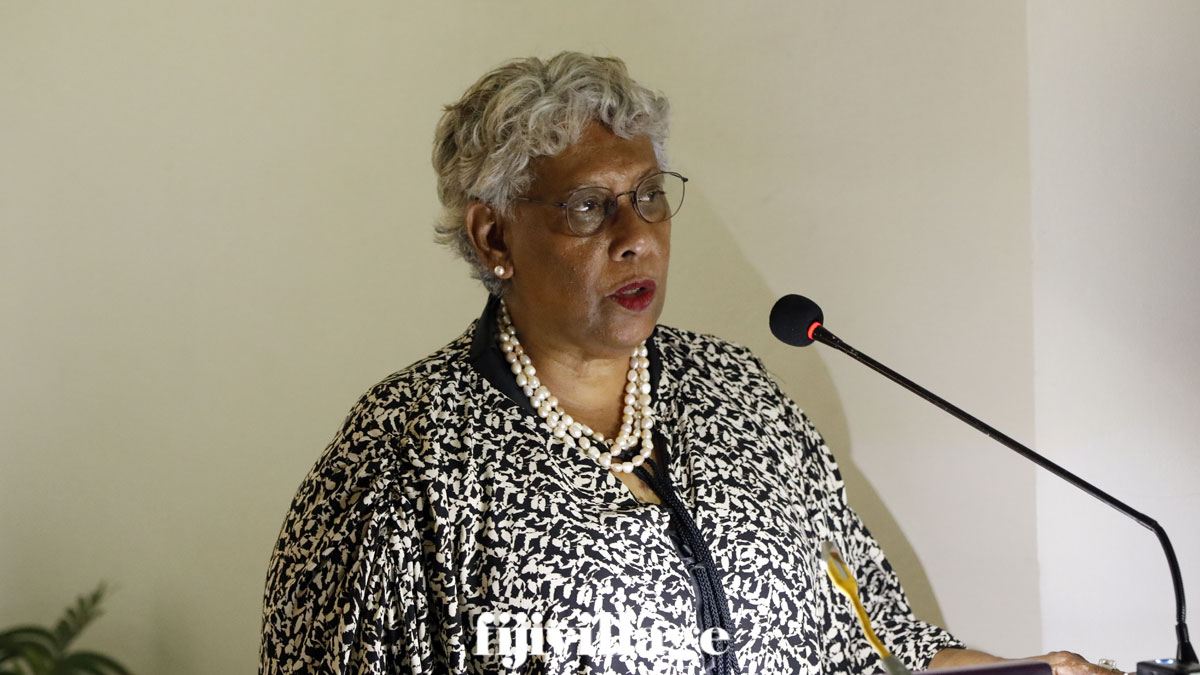
The University of Fiji says that to scrap the automatic progression, also known as ‘no-repeat’, decision in the schooling system is likely to breach the provisions of a number of the United Nations Conventions and Declarations that Fiji has signed including the Convention of the Rights of the Child and the United Nations Declaration of Human Rights specifically on Education.
Vice Chancellor Professor Shaista Shameem says that after consultation with the experts in the Department of Education in the School of Humanities and Arts at the Uni Fiji, they believe ‘leaving no child behind’, ‘best interests of the child’, ‘non-discrimination’ and ‘development and protection of the child’.
Professor Shameem says they would be breached should any such policy be introduced at the last minute without supporting data being provided by the Ministry of Education.
She says in particular the Ministry should look at its obligations pursuant to Articles 2, 3 and 6 of the Convention of the Rights of the Child.
Professor Shameem says the University was informed of the Ministry’s consultation to be held in Suva with only two days’ notice.
However, the University will be represented at the consultation with its policy paper.
She says the University’s assessment of the problem that was outlined by stakeholders could only be resolved with an education policy that was based on Fiji’s international obligations of the rights of the child in education.
The Vice Chancellor says the reason why children failed at school was not the fault of the child but had to be analysed with the entire social spectrum including family and community circumstances.
She says the psychological damage inflicted on children who had to repeat classes through no fault of their own had not yet been properly understood by the education system which needed the appropriate level of expertise to solve the problems and not to merely provide band-aid solutions.
Professor Shameem says the University says the possible solutions for the problems identified are:
To provide proper support in schools to cognitively diverse and differentiated student learners.
Teach teachers how to identify those students who can learn independently and those who need support and extra attention, from the earliest stages, even at Early Childhood.
Provide expert and qualified counselling support to all students, especially those with challenges in the home environment, and to identify children with specific issues such as an abusive environment.
Consider the notion of ‘zone of proximate development’ and understand how this works for the child in the classroom;
Consider re-introducing school inspectors to ensure that teachers did their due diligence when assessing student performance and that teachers performed to the highest expectations;
To understand how challenges such as dyslexia, attention-deficit hyperactivity disorder, autism and other limitations affected cognitive learning and to provide appropriate solutions;
To understand and deal with levels of ability and disability from the earliest stages;
To ensure early detection of auditory, visual and other impaired learners;
To find alternative forms of Formative Assessments to assess how the same skills/attitude/values are ingrained within learners;
To consider retraining Remedial and Early Intervention Teachers; and
To embed sports and other non-formal educational capacities in all subject areas from ECE to Tertiary level for holistic learning and living.
Professor Shameem says that unless the Ministry and all education stakeholders undertook a proper assessment of the situation of so-called ‘non-performers’ in the classrooms any change in directive to force students to repeat when other more humane solutions had not been explored.
She adds this would cause a real deficit in developing the cultural capital of the nation and also interfere with the next generation’s productivity for the good of all.
Meanwhile, the National Consultation on repealing Automatic Progression will be held at the Suva Grammar School Hall today from 9am-12pm.
Stay tuned for the latest news on our radio stations


